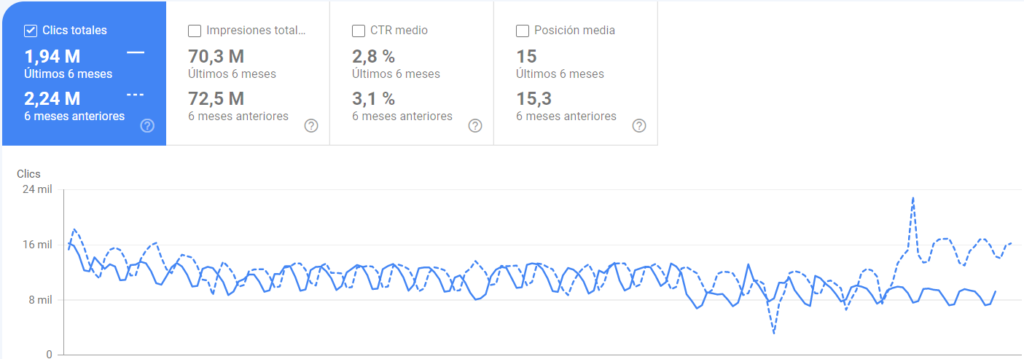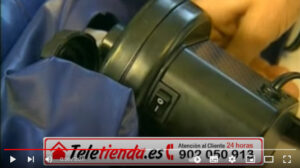Have you ever stayed up late at night watching TV? If so, you’ve probably seen a teleshopping commercial at some point. Watching one of these ads, we all ask ourselves:
“Does anyone really buy from these commercials?”
It’s important to put things in context. In the past, before the digital world, advertising was really expensive. Few companies could afford to produce an ad, let alone advertise on TV.
So, if a manufacturer was investing money in this kind of advertising, it was because it worked.
That’s why we’re going to review the 3 advertising techniques used by these memorable ads. Applying them will not only improve your ads but also your communication skills.
[poll id=”31″]Our Teleshopping Ad Example: The Restform Inflatable Bed
To illustrate the 3 teleshopping advertising techniques, let’s study the following ad:
Before continuing reading, watch this 2-minute video. Let’s discover together the secrets hidden in this seemingly innocent ad.
Seriously, watch it. To the end. Well, you can skip the part about calling the phone number.
Ready?
Advertising Technique 1: Comparison
When selling, it’s tempting to list all the features and specifications that make your product or service the best.
But I’m afraid to tell you:
Data alone is worthless. You need to compare it.
Let’s see an example:
The following graph shows the visits a website has received in the last 6 months through organic traffic:

Almost 2 million clicks—not bad, right?
But…
Can we really tell if this number is good just by looking at it?
Not really.
Look at the next graph, where we compare the website’s performance over the last 6 months to the previous period:

Suddenly, the 1.94 million clicks don’t seem so impressive, knowing that in the same previous period, the site had 2.24 million clicks—a 13.39% drop in traffic.
See? Now the information is more valuable.
The same goes for your product or service features. If you don’t compare the value of what you’re selling to your customer’s current situation, you’re missing the chance to highlight your product’s advantages.
Before vs After
We’ve seen that data alone is meaningless; you have to compare it.
As mentioned earlier, teleshopping ads are very effective because they use this principle. Let’s recall how our example ad starts:

“Does it force your friends and family to sleep squeezed on an uncomfortable sofa or sofa bed?”
It’s hard to imagine letting anyone sleep like that.

Voila! Your solution to be a good host.
See how the product’s value stands out more when compared to the alternative of not having it? Comparing before and after is a great technique to highlight the situation your customer wants to change and show the value your product or service offers.
Data alone is worthless. You need to compare it.
Advertising Technique 2: Paint the Problem
The first technique is powerful, but teleshopping ads actually use two techniques at once.
They talk about the problem, and they describe it in detail.

They highlight every problem in detail:
Problem 1: Forces friends to sleep squeezed
- Image of adult struggling on a small sofa.
- Back pain from sleeping on a sofa bed.
Problem 2: Hard-to-inflate bed
- Image of person struggling to inflate the mattress in an awkward position.
Problem 3: Mattress loses air
- Image of person waking up at night because the mattress deflated.
Why emphasize the problem so much?
To make the customer vividly imagine the pain they want to avoid. By painting the problem, people relive past experiences and feel the discomfort.
At that point, they will see the solution offered by your product as more appealing.
Note: always empathize with the customer’s pain.
Advertising Technique 3: Talk About Benefits, Not Features
When we know a lot about a subject, we often fall into the trap of speaking technically about it. We assume others know as much as we do.
If we do this with our product, we focus on features rather than benefits. We assume the listener can see the advantages just as we do.
Features describe WHAT our product or service IS, while benefits describe WHAT THE CUSTOMER GAINS from using it.
Until the customer sees the benefits, they won’t value the features. Benefits appeal to emotion, features to logic.
People make most decisions based on emotion, then justify them with reason.
Teleshopping ads always pair features with their benefits.

Feature: Restform air bed has a one-button pump.

Benefit: Inflates in 2 minutes effortlessly.
There are two types of benefits:
- Functional benefits
- Emotional benefits
Functional Benefits
Directly linked to the product’s function. They are objective and anyone receives them regardless of emotion.

Functional benefit: Top layer allows making the bed properly, avoiding cold nights and discomfort.
Emotional Benefits
Linked to the user’s feelings and experiences. They are subjective and depend on preferences and individual experiences.
To determine them, consider the target audience. In this ad, the focus is on people needing an extra bed for guests.

Emotional benefit: Your guests will remember you as the perfect host.
These benefits are the most powerful because they represent the ultimate desire motivating the purchase.
Know your customer, empathize, and discover the unique emotional benefit your product provides.
And with that, we’ve learned the 3 main teleshopping communication techniques.
There are more, but to Keep It Short and Simple, we’ll stop here.
These teleshopping advertising techniques are effective not only for ads. Used correctly, they improve communication effectiveness in many areas.
At our digital marketing and advertising agency, we help clients run advertising campaigns on display, social media, and search engines. We always focus on highlighting the benefits of their products and services, and understanding the target audience to optimize campaigns and ROI.
If you want us to manage your advertising campaigns, request a free quote.



